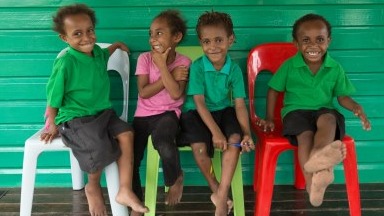LAL Seminar - Perspective and knowledge-related morphology in child-caregiver interaction: Some examples from Kopiago (Duna, Papua New Guinea)

Lila San Roque, University of Sydney
Languages spoken in the Hela/Southern Highlands region of Papua New Guinea represent some of the most complex evidential systems in the world. This complexity goes hand in hand with related grammaticalised meanings to do with personal knowledge or involvement (egophoricity), and epistemic alignment between speaker and addressee (engagement). All in all, these interwoven systems might challenge first language learners, who seemingly trip over a need to represent invisible and perspective-contingent features like evidence and intentionality pretty much every time they open their mouths.
In this talk I present sporadic data recorded in the Kopiago area (Duna language) with a few young children and their caregivers, collected with the support of language consultants P. Kilapa, K. Kendoli, and K. Kenny. I take a socialisation approach to examine knowledge-related morphology in interaction, including contexts such as question-answer sequences and reported narratives. The available Duna data indicate tentative agreement with broad trends identified for languages elsewhere (e.g., comparatively early use of direct as opposed to indirect evidentials) and illustrate how adults can model a keen (but covert?) attention to perspective in linguistic interactions with children.
Friday 16 October, 4:00pm
https://unimelb.zoom.us/j/99515742505?pwd=eUU4YVVySnJMY0QrU3VqZUZHYmlkdz09
Password: 881581